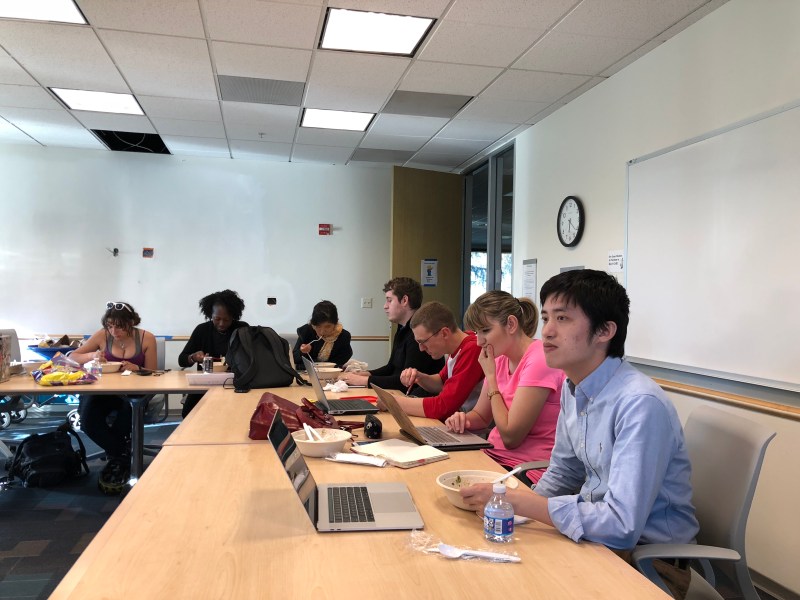During its first meeting of summer quarter, the Graduate Student Council (GSC) discussed the Associated Students of Stanford University (ASSU) operational budget and measures to improve funding conditions for graduate students.
The council also reaffirmed its commitment to the results of the Diversity & Advocacy Committee’s (DAC) graduate student survey.
DAC liaison and aeronautics and astronautics engineering Ph.D. candidate Ana Tarano discussed her initiative to look into the availability of funding for Ph.D. candidates in the School of Engineering.
Tarano expressed her desire to approach the Dean of the School of Engineering and illuminate the funding-related concerns that are shared among many graduate students. She hopes to gather input from engineering students and the support of the GSC in order to better present her views.
“I do think that there is power in doing it through DAC and the GSC because we are supposed to be representing student interests,” Tarano said.
Tarano said that, while Ph.D. students must often seek out fellowships, research and teaching assistantships or other programs in order to obtain funding, this may prove more difficult than expected.
“It’s always like ‘you’ll just figure it out, you’ll be fine,’ but it ends up happening that not a lot of students do fine,” Tarano said.
Ph.D. candidate Ricardo Peterson added that in his department, electrical engineering, a lack of funding for a quarter can leave students unable to pay for housing. Tarano concurred that funding issues’ effects are often multifaceted.
Councillors agreed that another key aspect of the issue is the lack of clarity in funding policies that vary by department.
“It’s such a loose policy … basically you need to figure it out how you’re going to be funded,” said mechanical engineering Ph.D. candidate Abísola Kusimo about her department.
The GSC committed to advocate for more transparency in the engineering school. Specifically, according to councilors, the institution should better inform prospective engineering graduate students on the availability of funding.
The GSC also resolved to learn more about how funding affects prospective graduate students’ decisions on attending Stanford.
The GSC also postponed its vote to approve the ASSU operating budget for the coming year. At a previous meeting’s closed session, ASSU financial manager Jelani Munroe ’16 M.A. ’17 had presented to the GSC about the proposed budget. However, councillors expressed concerns about the presentations’ specificity and called for more information.
Biophysics Ph.D. candidate Melanie Malinas expressed her desire for more detailed and complete budget information.
“There was not anything concrete [in Munroe’s previous presentation],” Malinas said. “I’d just like to see a full operating budget.”
In addition, the GSC voted to reaffirm its commitment to the results and recommendations put forth by the DAC’s graduate student survey conducted in 2017. The survey report contained policy recommendations regarding diversity, finances, health and living environment.
“It’s a way of [the GSC] bringing [the survey] to public attention again and saying that these are still issues affecting the graduate student population,” said co-chair and biology Ph.D. candidate Amy Tarangelo. “They are issues we need to be aware of and we need to fight for.”
Contact Maggie Zhao at maggiizhao ‘at’ gmail.com and Sean Chen at kxsean ‘at’ stanford.edu.
